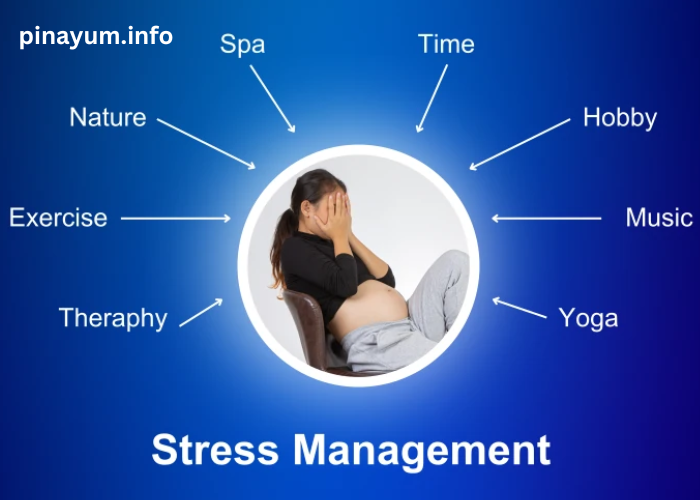In the fast-paced, competitive landscape of modern business, sustainable growth is crucial for long-term success. Many companies experience short-term success through various marketing tactics or seasonal spikes, but true sustainability requires a robust, forward-thinking strategy. The key lies in building a business model that can adapt to market changes, continuously improve, and thrive despite challenges.
This article will explore how businesses can develop strategies that ensure sustainable growth. We will delve into effective tactics for enhancing profitability, creating a loyal customer base, optimizing operations, and maintaining strong leadership. With a comprehensive approach to sustainable growth, your business can weather any storm and continue to flourish for years to come.
1. Understanding Sustainable Growth in Business
Sustainable growth in business is about expanding your operations in a way that can be maintained over the long term without overextending resources or compromising your core values. It goes beyond short-term profits or rapid growth at the expense of quality or ethics. Sustainable growth means cultivating an environment where your business can thrive steadily, improving its financial performance, increasing its market share, and creating value for both shareholders and customers.
Key Aspects of Sustainable Growth:
- Financial Stability: Ensuring consistent revenue and profitability.
- Customer Loyalty: Building long-term relationships with customers.
- Environmental Responsibility: Implementing eco-friendly practices and reducing your carbon footprint.
- Employee Engagement: Maintaining a motivated, skilled workforce.
- Innovation: Continuously improving products, services, and processes.
2. Prioritize Customer-Centric Strategies
Customers are the lifeblood of any business. Sustainable growth is directly linked to a company’s ability to attract, retain, and nurture its customer base. In a world full of choices, businesses must provide value, build trust, and offer exceptional service to stay ahead of competitors.
Develop a Strong Customer Relationship Management (CRM) System
Investing in a robust CRM system can help you maintain an organized database of customer interactions. It allows you to personalize communications, track purchase behaviors, and identify opportunities for upselling or cross-selling. By using data insights to cater to customer preferences, businesses can improve satisfaction and retention, which are key to long-term success.
Customer Feedback Loops
Listening to your customers is one of the most effective ways to improve products and services while strengthening loyalty. Implementing regular feedback channels, whether through surveys, social media, or direct customer interviews, allows businesses to stay attuned to customer needs. Addressing concerns promptly and adapting based on customer feedback fosters positive relationships and encourages repeat business.
3. Invest in Innovation and Continuous Improvement
To sustain growth, businesses need to remain innovative and adaptable to changing market conditions. Innovation doesn’t necessarily mean launching entirely new products or services; it can involve improving existing offerings or optimizing business processes. Regular innovation ensures that your business stays relevant and competitive, even as trends and technologies evolve.
R&D and Product Development
Investing in research and development (R&D) can help your business anticipate industry trends, meet changing customer demands, and stay ahead of competitors. Whether you’re introducing new products or enhancing existing ones, continuous product development ensures your business offers cutting-edge solutions to customers.
Process Optimization
Beyond innovation in products, businesses should also focus on optimizing internal processes. Lean operations, automation, and the use of data analytics can streamline workflows, reduce costs, and improve efficiency. This allows your business to scale without sacrificing quality or profitability.
4. Strengthen Your Brand Identity and Reputation
A strong brand identity is essential for long-term business growth. Customers are more likely to engage with a brand they trust, and a well-established reputation can provide a competitive edge. Building a recognizable, consistent brand can help you connect with your target audience and stand out in a crowded marketplace.
Develop a Clear Brand Vision
Your brand vision defines the direction of your business and helps communicate your core values to customers. Whether you’re focused on customer service, sustainability, or quality, ensuring that your brand vision is clear and consistent will foster loyalty and reinforce your credibility in the market.
Brand Consistency Across Channels
Inconsistent messaging across your website, social media, and marketing materials can confuse customers and diminish trust. Maintaining consistent branding, tone, and messaging across all touchpoints is essential for creating a cohesive customer experience. Your brand identity should be evident in everything from visual elements (logos, colors, fonts) to content strategy and customer service interactions.
5. Build a Strong Digital Presence
In today’s digital age, businesses must have a solid online presence to remain competitive. Digital channels provide a platform for reaching global audiences, engaging with customers, and driving sales. Establishing a strong digital presence is an essential aspect of a sustainable growth strategy.
Website Optimization for User Experience
Your website is often the first point of contact between your business and potential customers. A user-friendly, responsive website that’s optimized for mobile devices can improve customer retention and conversion rates. Make sure your website is easy to navigate, provides valuable content, and offers a seamless purchasing experience.
Leverage Social Media for Engagement
Social media platforms are vital tools for building relationships with customers and creating brand awareness. By engaging with customers through posts, comments, and direct messaging, businesses can strengthen brand loyalty and increase visibility. Running targeted ads, promoting user-generated content, and hosting live events on social media are effective ways to stay connected with your audience.
Content Marketing for Authority and Trust
Content marketing allows businesses to position themselves as thought leaders in their industry. By providing valuable content—such as blog posts, whitepapers, videos, and podcasts—businesses can engage potential customers and build trust. Regularly updated, high-quality content keeps your audience engaged and can drive organic traffic to your website.
6. Foster a Positive Company Culture
A positive company culture is essential for long-term business success. When employees are engaged, motivated, and aligned with the company’s goals, they perform better and contribute to sustainable growth. A strong company culture improves employee retention, boosts productivity, and enhances customer satisfaction.
Employee Engagement Programs
Encourage your employees to take ownership of their roles by providing opportunities for growth, feedback, and involvement in decision-making. Offering professional development programs, mentorship, and training opportunities can keep employees engaged and increase job satisfaction.
Work-Life Balance
Support employees in maintaining a healthy work-life balance. Overworked employees can lead to burnout, decreased productivity, and high turnover rates. Providing flexible work schedules, wellness programs, and a supportive work environment can help maintain employee satisfaction and long-term success.
7. Financial Management for Sustainable Growth
Sound financial management is the backbone of sustainable business growth. To ensure long-term success, businesses must manage their cash flow effectively, allocate resources wisely, and make strategic financial decisions.
Cash Flow Management
Maintaining healthy cash flow is vital for a business to sustain operations and invest in future growth. Monitoring cash flow regularly helps identify potential issues before they become critical. Having a buffer for lean periods ensures that your business can continue operations without interruption.
Strategic Investment
While saving money is important, strategic investments can propel a business toward sustainable growth. Whether investing in new technologies, expanding your team, or enhancing your marketing efforts, it’s essential to reinvest in the business for future success.
8. Expand Strategically
While rapid expansion may be tempting, it’s important to approach growth strategically. Expanding too quickly without adequate preparation can strain resources, reduce quality, and negatively impact customer satisfaction. Instead, businesses should focus on sustainable expansion by entering new markets, diversifying product offerings, or acquiring complementary businesses.
Market Research for Expansion
Before expanding, conduct thorough market research to assess demand, competition, and potential barriers to entry. Understanding local customer preferences, cultural nuances, and regulatory requirements will enable you to enter new markets with confidence.
Scalable Operations
Ensure that your operations can scale with growth. This includes having the right systems in place to manage an increased customer base, production capacity, and employee headcount. Cloud-based tools, automated processes, and an efficient supply chain will enable you to handle growth without compromising quality or service.
9. Focus on Corporate Social Responsibility (CSR)
In today’s socially conscious world, businesses are expected to give back to their communities and take responsibility for their impact on the environment. Sustainable growth goes hand-in-hand with corporate social responsibility (CSR), which involves aligning your business practices with ethical, environmental, and social values.
Environmental Impact
Implementing sustainable business practices such as reducing waste, conserving energy, and sourcing materials responsibly can help improve your business’s environmental footprint. Customers increasingly prefer brands that take steps toward sustainability, making it an important factor in long-term growth.
Giving Back to the Community
Philanthropy and supporting local communities can build goodwill and strengthen your brand. Consider partnering with charities, organizing community events, or volunteering as a team. These initiatives demonstrate your commitment to social responsibility and foster positive public perception.
10. Embrace Technology and Automation
To maintain efficiency and remain competitive, businesses must embrace technology and automation. Whether it’s customer service chatbots, inventory management systems, or data analytics tools, leveraging technology can streamline operations, reduce costs, and provide valuable insights into customer behavior.
Automate Repetitive Tasks
By automating repetitive tasks such as invoicing, data entry, and email marketing, businesses can free up time for strategic decision-making and creative projects. Automation tools improve efficiency, reduce errors, and allow employees to focus on higher-value activities.
Data-Driven Decision Making
With the vast amount of data available today, businesses can make more informed decisions. By analyzing customer behavior, purchasing patterns, and market trends, businesses can identify opportunities for growth, optimize marketing efforts, and improve customer experience.
11. Conclusion: Building a Blueprint for Long-Term Success
Achieving sustainable growth is a long-term journey that requires dedication, adaptability, and a clear strategy. By focusing on customer-centric initiatives, investing in innovation, fostering a positive company culture, and managing finances wisely, businesses can ensure their growth is not only rapid but sustainable. The strategies outlined in this article can provide a roadmap for businesses looking to create lasting success, weather challenges, and thrive in an ever-changing market.
Incorporate these practices, and you will be on your way to boosting your business strategy for sustainable growth, ensuring long-term success, and a prosperous future for your organization.





